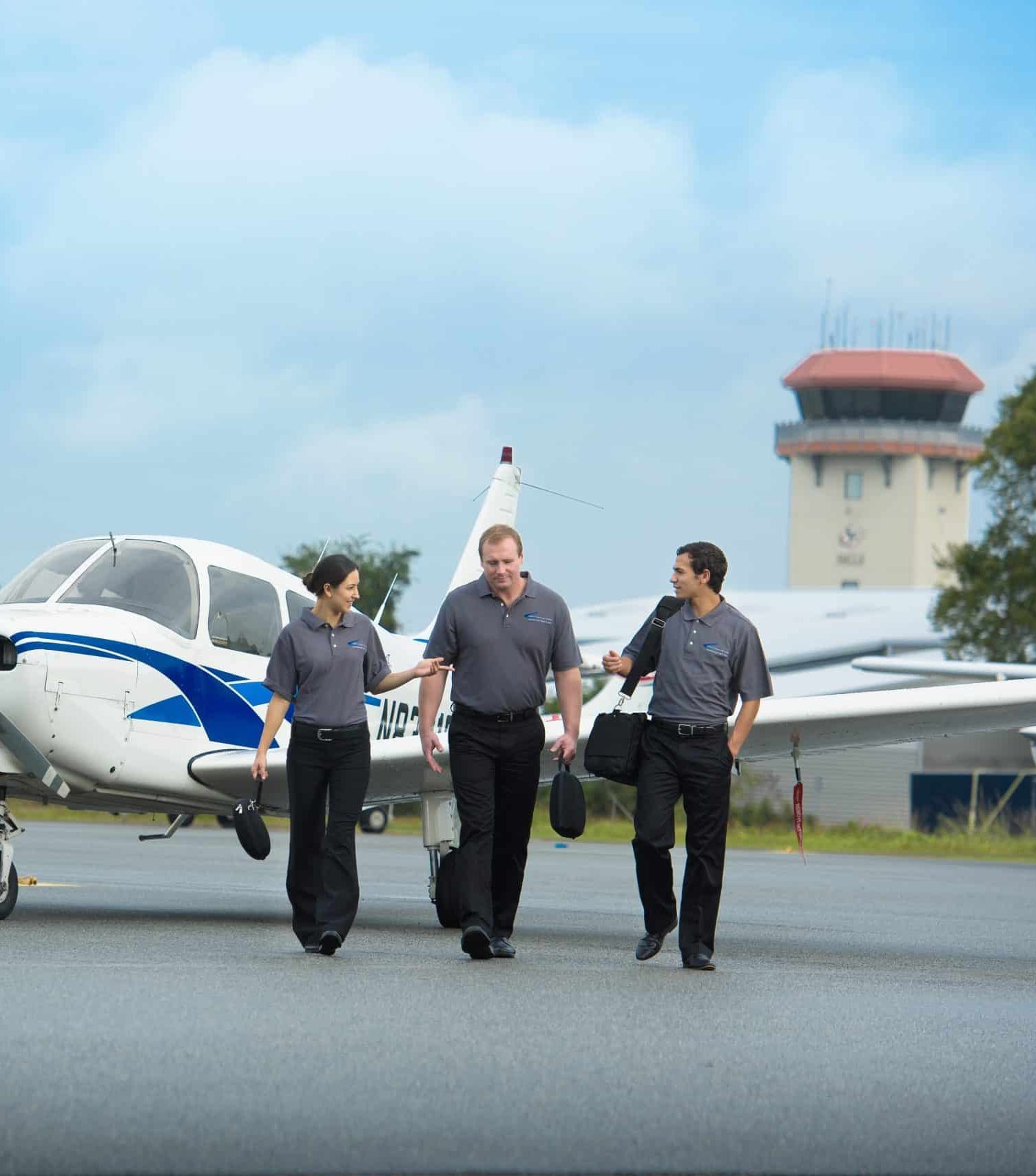The aviation sector is changing drastically. It was associated for years with airports, and on-site jobs. Remote airline jobs are an important shift in the industry, thanks to advancements in technology and a growing emphasis on flexibility. These opportunities enable professionals to be part of the aviation industry from the home or in remote locations, changing traditional career paths and providing an unbeatable work-life balance.

Image credit: flightschoolusa.com
Remote Airline Jobs are on the Rise
The past was when roles which required physical presence were the norm in the aviation industry. These included pilots flight attendants, and ground staff. Digital technology has revolutionized the way airlines work. Many of the tasks that previously required meetings in person are now handled online. Remote jobs are a great alternative for airlines. From data analysis to customer service requests and more, they’ve proven to be a reliable and efficient option.
This change isn’t just about the convenience. For airlines, adopting remote work offers cost-effective solutions in reducing the overhead costs for office spaces. Employees can work remotely which reduces the hassle of commuting and enhances harmony between work and life. It also opens up new opportunities in the global market.
Roles of Remote Airline Jobs
Remote airline jobs encompass a wide array of roles with each one requiring a specific level of expertise and skills. A few of the most well-known roles include:
Customer Service Representatives : Handling reservations, resolving passenger queries, and addressing complaints can all be handled virtually which makes customer service one of the most sought-after roles for remote airlines.
Revenue Management Analysts (RMA) Professionals in this field have a vast knowledge of using sophisticated analytical tools and data, to optimize ticket pricing and revenue streams. They may work from a distance.
Marketing Specialists: Airlines rely on experts in digital marketing to design campaigns to handle social media accounts and improve the engagement of their customers on the internet.
Travel Agents: Remote travel agents assist customers with flight bookings and itinerary plans, leveraging technology to streamline the process.
IT and Cybersecurity professionals: The support of airline systems, as well as ensuring data safety, and maintaining IT Infrastructure are all important roles that can be carried out remotely.
Benefits of Remote Airline Jobs that include Benefits of Flight
One of the most attractive features of jobs in remote airlines with flights is the ideal mix of flexibility in the workplace as well as the traditional benefits of flying. These types of jobs are becoming well-known due to several reasons.
Flexibility in work and life: Remote positions allow employees to adjust their work schedules so that they can meet personal and professional obligations which can lead to better job satisfaction.
Cost Savings Work from home reduces everyday expenses for commuting, including food and transportation. This leads to significant savings.
Travel Perks: Many airlines offer benefits on flights, such as discounted or free travel, to employees who work from home. This not only enhances work satisfaction, but also provides the opportunity for unique travel opportunities.
Remote Accessibility: Remote jobs allow professionals from different locations to join the aviation industry, which fosters a more diverse and inclusive workforce.
Airlines Remote Worker Skills Requirements
For jobs in remote airlines to be successful, you must have certain skills.
Technical Proficiency is essential for an efficient remote operation.
Communication Skills: Effective written and oral skills in communication are essential to an effective teamwork.
Time Management: The capacity to plan tasks and meet deadlines on your own is essential to the success of remote workers environment.
Problem-Solving: Remote posts typically require quick thinking, adaptability and the ability to solve issues without immediate support.
How to Get Remote Airline Employment Opportunities
To get a remote air place, you must prepare effectively. Here are some tips to get you started:
Research Opportunities: Look through the career sites of airlines and remote job boards to find opportunities that match your skills and interests.
Polish Your Resume: Highlight your remote job experience, technical knowledge as well as relevant certifications.
Use LinkedIn to connect with aviation professionals, and also learn about the latest opportunities.
Try answering questions and demonstrate your ability of working independently and managing remote tasks.
Remote Airline Jobs The Future
Remote airline jobs are expected to increase in the coming years as airlines continue to innovate. The aviation industry has benefited from the advances in data analytics, communications technology and automation.
The rise of remote work reflects a broader shift in the workforce of today that emphasizes flexibility, efficiency as well as employee satisfaction. For those seeking a career in aviation without the constraints of traditional roles, remote airline jobs offer an exciting and viable pathway.
This type of job allows professionals to reap the benefits and the challenges of working remotely. If you are an experienced professional in aviation or who wants to break into the business remote airline positions that come with flights can propel your career to the next stage.
